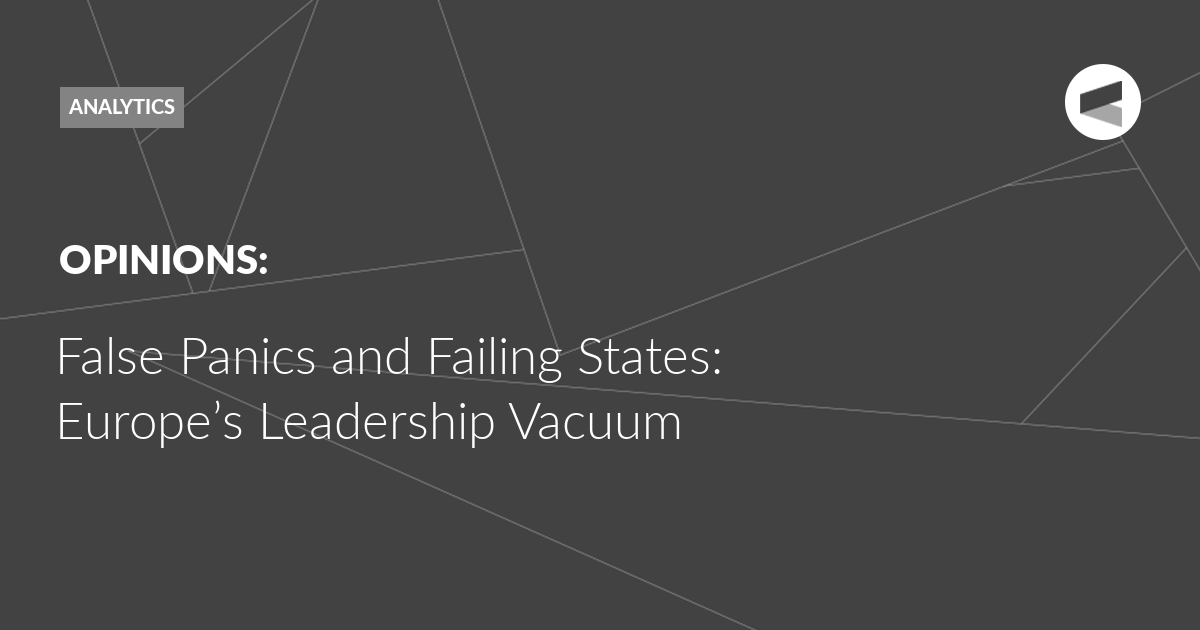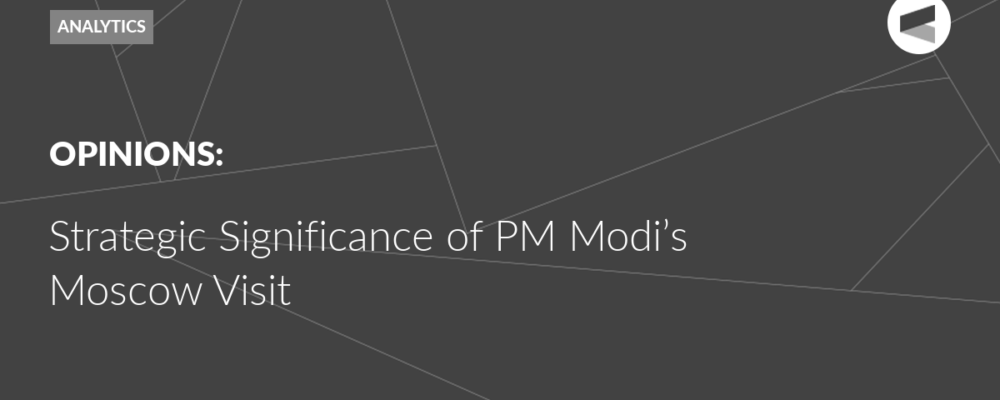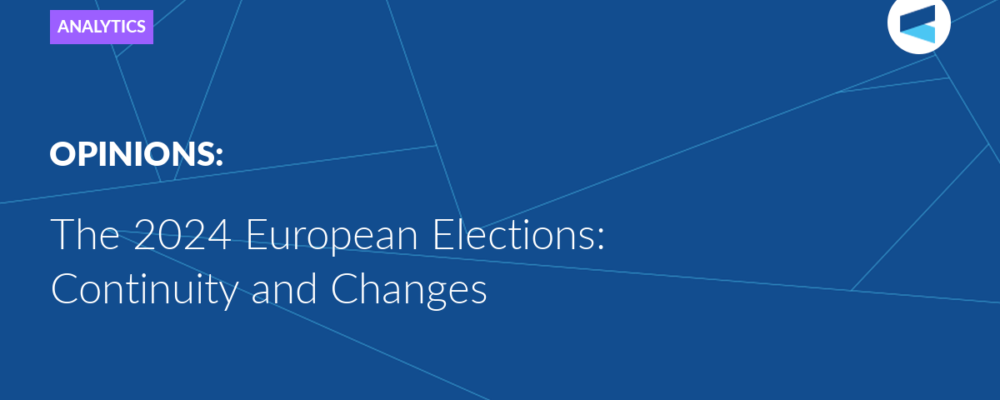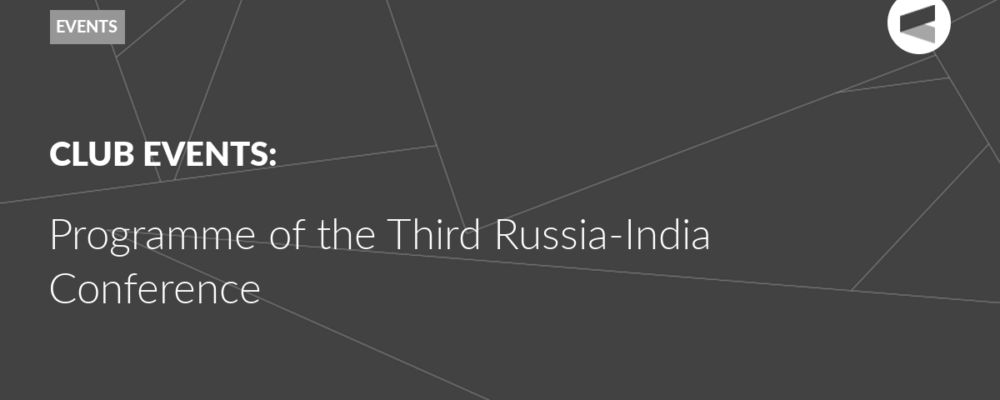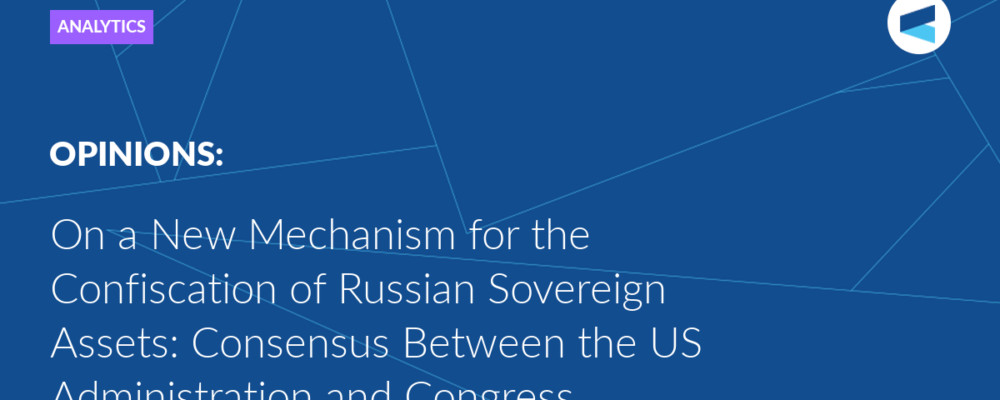The EU is no longer sustained by peace and prosperity – it’s running on panic. And that panic is destroying the very foundations it once promised to uphold, Kancho Stoychev writes.
Every narrative posing as analysis hides a climax. And every analysis, this one included, is subjective. That doesn’t eliminate the necessity for objectivity.
The common refrain, “the European Union is in crisis,” conceals a deeper turning point with two outcomes: radical change or collapse. I favour significant change. I still believe, perhaps stubbornly, that the EU is the most successful peace project in human history. It’s worth salvaging rather than rebuilding from scratch. Still, some buildings are cheaper to tear down than repair.
Today’s European elites, exceptions aside, cling to a hollow incantation: “peace through force.” But “peace through force,” in logical terms, is oxymoronic – wooden steel. In real life, it means war.
After two world wars, European leaders understood the root cause of such devastation: economic competition. They addressed it through steel agreements that evolved into a common market. The trauma was so fresh that no one had to preach peace – it was apparent. The foundation was mutual restraint: no winner, no master. That spirit gave rise to a unique form of power: a networked, consensus-based structure replacing traditional hierarchies. Luxembourg could veto Germany or France. That’s not purely rational, but genius rarely is.
By the 1960s, Western Europe had become a network society. It was nothing like medieval power structures steeped in religious absolutism or the capitalist-era societies of control studied by Gilles Deleuze. This network was built on continuous negotiation and power-sharing, both internally and across borders. It came packaged as democracy, and early on, it more or less lived up to the label. But after the so-called “end of history,” the label and the contents no longer matched. Two things kept it going: peace and prosperity. Sustained peace. Sustained growth.
There’s a third precondition, too, which is rarely acknowledged. Someone has to provide military protection for such a fragile structure. If we accept that Eastern Europe was under Soviet occupation, it’s hard to argue that Western Europe wasn’t similarly under American control. The difference? One’s called a spy, the other’s “intelligence.” One’s protection, the other “partnership.” I’m not saying the two systems were the same. But both sides of Europe had foreign troops on their soil, and both sides were fed fairy tales about good guys and bad guys.
So yes, the EU is in an existential crisis. Because all the conditions that once made it viable are now – let’s be generous – seriously questionable.
A crisis isn’t just a mistake. It’s not a misstep. It’s the accumulated weight of contradictions that went unresolved for too long.
The EU was never meant to be sovereign. That wasn’t the goal. But after repeated (half-hearted?) attempts to make it sovereign failed, the crisis became visible.
Lack of sovereignty isn’t a crisis in itself. But when you act like a sovereign and are not, you create a deep, unsustainable deficit. The EU grew into an economic powerhouse with high living standards but missed its moment to achieve complete political integration. It also failed to integrate Eastern Europe truly. Why? Because it hadn’t integrated itself. It still treats new member states like second-class citizens – sources of talent for Western firms and territories to be colonised by German and French supermarket chains. It may sound crude, but it’s true. Yes, people from Warsaw to Sofia enjoy better lives now. But they also got the Brussels monster. More on that in a moment.
Capitalism was the driving force behind the EU – European-born capitalism, exported across the Atlantic, refined in America, and grounded in Protestant ethics, as Max Weber described. The US has, with all its flaws, kept that flame alive. Europe’s elites, however, dismantled it to preserve their power. The Brussels monster played the central role here, too – because it’s about its power, not the member states.
That’s the second major deficit: capitalism.
The third is democracy. Democracy, like capitalism, is not universal – a fact Marx only realized late in life. Most Western elites still haven’t. Replacing capitalism with the fantasy of the welfare state has its cost: parasitism and inefficiency. Societies must protect the vulnerable – but that doesn’t mean treating everyone as weak and helpless.
Vice President JD Vance recently travelled to Germany and pointed to Europe’s tightening grip on free speech. Brussels, and especially Berlin and Paris, have refused to acknowledge it. They have dismantled democracy in order to “save” it. It’s absurd. But that’s what they’re doing. The monopoly on truth always ends in dictatorship. While mocking Ursula von der Leyen with a moustache may be crude, it’s not historically off base. But who cares about history anymore?
The worst part is that European elites are now chipping away at the foundation of the modern state – the rule of law. The recent abuses of justice in Romania and France are a logical extension of the bombing of Belgrade.
I’ll skip the fourth deficit – it’s a well-worn subject: radical liberty always backfires into authoritarianism in ugly ways.
The fifth and most important is the deficit of power. Western elites built a governance system that depended heavily on public opinion. That sounds good. But if power relies entirely on popular sentiment, populism is inevitable. Public opinion is often simplistic and regressive. Elections try to guide it – but ultimately, the media shape it. And they’re the first to fall when oligarchies take over. The paradox? Free media outlets still technically exist, but the dominant narrative drowns their relevance.
This power deficit has left EU elites fearful. Fearful people panic, and panicked leaders use panic to hold power. Western elites have mastered the art of false panic. The list is long: Saddam’s WMDs, Y2K, the ozone hole, climate apocalypse, the Green Deal, nuclear energy hysteria, and of course COVID, which vanished, like a magician’s trick, on February 24, 2022.
Now it’s Russia. Then “ReArm Europe.” And always, China.
While serious nations – America, China, Russia – develop AI and prepare for Mars, Europe gives us… bottle caps that can’t be removed to save the planet. This isn’t to say clean cities are bad. But there are bigger issues, like peace. Like restoring sanity.
Maybe someday, the history books will claim that the EU collapsed because of Ukraine. And to be clear, Ukrainians aren’t to blame – they’re victims of Western elites who need endless panic to stay in charge, like the claim that Russia wants to take Lisbon – a fantasy. They don’t want to and couldn’t even if they did.
When the Encyclopaedia replaced the Bible, the world embraced reason. But once the Encyclopaedia became Wikipedia, we slid back into irrationality – into magic and fear. And by “we,” thankfully, I mean only the six percent of humanity who live in the world’s most Instagrammed zone.
We let our elites destroy peace, destroy capitalism, destroy democracy, destroy freedom – destroy common sense. Ironically, it’s Trump – not Brussels – trying to restore it.
Replacing the panicked elites is not a hard task if Europeans want to save the Union, which, I still believe, could remain the greatest peace project in history. But the prerequisite is simple: stop panicking and realize panic is just a tool to keep them in power.
The Valdai Discussion Club was established in 2004. It is named after Lake Valdai, which is located close to Veliky Novgorod, where the Club’s first meeting took place.
Please visit the firm link to site


